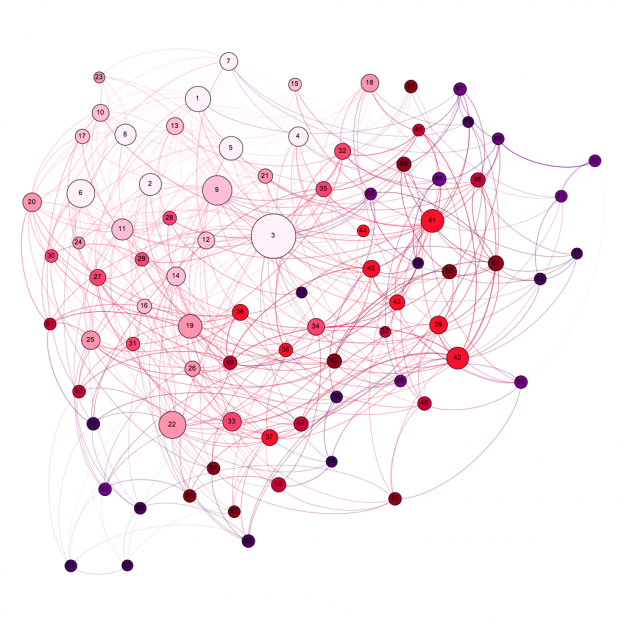What if the Leaves of Grass was instead called Webs of Grass?
I’ve created a series of network graphs that represent the multiple editions of Whitman’s Leaves of Grass, in which pages are represented as nodes and the edges represent the lexical similarities between them. The networks are drawn in an “evolutionary” way, so for each page that enters, the program measures the distance of the new page to all prior ones based on its vocabulary. It then selects the top 6 closest pages and continues on through the whole work. So what you see is an evolving web of relations between the pages of Whitman’s Leaves.
This project is part of a larger investigation into the relationship between human aging and poetic expression. Instead of the strong determinism of a lot of recent writing in literary evolution or biopoetics, I’m interested in seeing how writers’ work develops over time and whether there are consistencies between that development. Is there something common about the “career” or the “corpus” when taken as a whole or do we find that career’s are more culturally conditioned, or more expressive of the writer’s personal poetic aims? When I was in graduate school I was trained to studiously avoid biographical criticism, for reasons that are in retrospect not entirely clear to me. It’s telling, in a sign of the times, that one of the greatest proponents of this doxa, Stephen Greenblatt, is finishing his career by writing biographies of poets. We know for example from the work of Ian Lancashire that large-scale linguistic patterns can indicate the onset of mental illness in writers. As he has shown, we can identify with a great deal of precision when alzheimer’s emerges in writers, most often well before they are officially diagnosed. But aside from these more dramatic physiological states reflected in language, I’m interested in the extent to which there might be associations between how we write and how we age.

